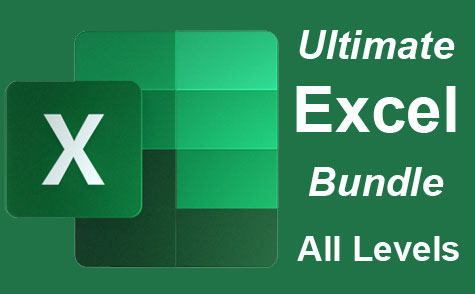Internet Specialist: How to Prepare to Build a Web Site
One of the most important functions of an Internet specialist is to assist businesses and individuals in the preparation and building of a Web site. The process of creating a Web site must be separated into the two phases of preparation and building, as they are quite distinct from one another. By planning your site to be its best before you start, you prevent it from being ineffective, and there will be no need later on to make any major and costly adjustments. This article is aimed most at people who are planning a business site, but it easily can be used to guide you in preparing for a personal site as well.
Know Your Business
This might seem elementary to some people, but the first place to start in planning a Web site is to take a close look at your business. The single biggest mistake people make in starting the site-building process is that they have very unclear business objectives. There are so many companies and nonprofits who are conducting business as usual without really thinking about what they do and how or why they do it. Even those businesses that have established missions can benefit from revisiting or revising the core of how they do business.
A company's unique selling proposition (USP) is the most important aspect to clarify before approaching a Web designer or attempting to build your own site. A USP is what sets your company apart from your competitors. One of the biggest misconceptions of the Internet is that having a Web site is going to automatically generate business. This is entirely false. Your unique selling proposition is what makes customers want to use your services rather than a competitor's, and it must be clearly defined. A USP does not need to be complicated. It could be as simple as serving a specialty niche, offering extra customer service, or providing a fun shopping experience.
Have a Purpose for Your Web Site
Once your clients have decided on their business' unique selling proposition, it is time to ask them why they want a Web site. It is a question that every website designer will ask before he or she begins work, and many will not work with a client if they do not have a clear answer. Websites cost money to build and maintain, and you will want it to achieve a specific purpose. Does your client want to sell products? Does he or she want people to sign up for more information? These are two excellent reasons for wanting to build a site, and here are several more:
A Web site can have more than one purpose, but it is recommended that you narrow it down to one overarching purpose, and use this purpose to guide all the decisions you make about the site's implementation.
Research Your Target Market
Knowing your target market is going to help a company deliver what its customers want. A client might have several target markets, but the key is that most people who need the client's services will have things in common. Your client, and you if asked, must research the demographics of the company's customers. It is also important to note here that while you are thinking about your target market, customers' purposes for visiting the Web site might be different from your purpose in building it. When potential customers visit a site, they think about the following:
|
� Do I really need this product or service?
� I want to learn more about this product or service.
� I want to see if this company is the best choice for providing this service.
� How does this company do business?
� How can I contact someone if I have questions?
� How can I buy products or services?
|
You and your client must think from the target market's perspective. Will customers be able to accomplish all of the preceding tasks when they visit your site? In this preparation stage, you must ensure that you have elements on your site that will enable them to do so. In short, you must ensure that your potential customers can take action when they visit your site. You never want them to leave without getting what they came for. These considerations will help you decide the navigation of your site, how to organize sections of it, and how many pages you will need for your site. Marketing Plan for Your Web Site
Naturally, most companies have a marketing plan for their business, but you must also have a marketing plan for your Web site. This is a foreign concept to many people, but if you launch a site without a plan on how to attract people to it, you will not receive any visitors. How much of a marketing plan you need depends on the type of organization. If the company is a business, it needs a full, detailed marketing plan, but if the Web site is a marketing tool for a small brick-and-mortar store, a plan does not have to be so detailed. If the site is intended to sell products, you need to have a more detailed plan than if you want a site to act as an online brochure.
|
The following are some elements you should consider in a Web site marketing plan:
� How much money do you wish to spend each year?
� What directories are appropriate for your site?
� What terms and words would people use to search for your company?
� Do you want to keep in touch with people who visit your site? � Do you want to use social media like Facebook or Twitter?
|
Research Keywords and Phrases
One element of your marketing plan is to know what words and phrases people are going to use when they search for your site. While it is not a foolproof way of guaranteeing you will have visitors, it is vital that you know these keywords. A keyword is the term used to describe a word that people enter in search engines like Google and Yahoo. You and your client will need to make a list of all variations of words that might be used to search for your company. For example, a science fiction book publisher might use all of the following:
� science fiction
� sci fi
� scifi
� sci fi books
� sci fi new releases
� science fiction publisher
� scifi publisher
Some terms seem repetitive, and that is necessary because you do not know exactly how a potential customer is going to search for you. After you have this list compiled, use the terms in a search engine and see what listings are displayed. If your competitors are not listed, this might be a good thing because it might signal that you have discovered something unique about your business that your competitors are not offering. On the other hand, if your competitors are not listed, you might be missing some important keywords that your own customers will be using.
Research Competitors' Web Sites
Lastly, visit your competitors' sites and take note of what you like and do not like. Incorporate all that you like in your own site. Notice the colors they use, the fonts, the layout, the navigation options, the use of images, and how easy it is to find contact information or to make a purchase.
Research Tools
Search Engines
However, search engines usually are the first place to start when performing Internet research. For a more specialized research project, you might want to refer to the tools listed below.
Library of Congress
The Web site for the Library on Congress is a portal that gives you access to the oldest cultural institution in the United States and a library of immense proportion. It is one of the largest repositories of data in the world. The Library of Congress is a collection of databases, and it catalogs nearly every book ever published in the United States.
Within the Library of Congress, there are too many specialized databases to mention, but here are some highlights:
Google Scholar
Google Scholar is a repository of data on business, humanities, the arts, science, and math. It contains abstracts, which are snippets of full articles, as well as full articles that are superb sources of research and information.
Encyclopedia.com
Encyclopedia.com is exactly what its name implies: an online encyclopedia with many thousands of short articles.
Public Library of Science
The Public Library of Science is an open-access database of scientific experiments and data that is conducted in peer-reviewed publications. It is a often regarded as a model for the future of publishing scientific research on the Internet.
Online Newspapers
Online Newspapers is an index of more than 100,000 newspapers around the world.





























